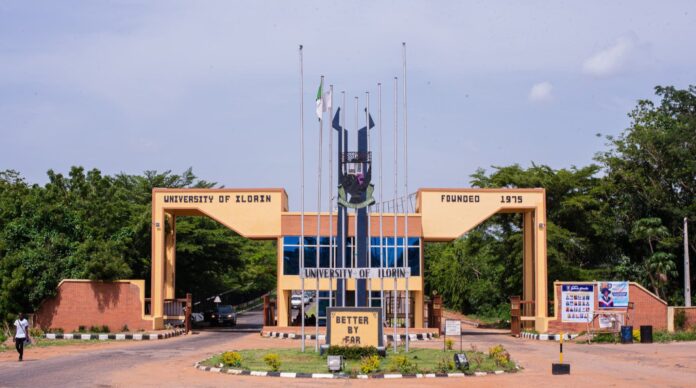A fierce leadership dispute has engulfed the University of Ilorin Alumni Association, with two rival factions vying for control of the prestigious body. The crisis, which has brought tensions to a boiling point, involves a battle between two self-styled presidents—Professor Kilani Abdulrasheed Olusuyi and Dr. Stephen Olawale Fashakin. The situation has escalated, with accusations of impersonation and a deepening rift within the alumni community.
The Rival Presidents
At the heart of the controversy is the appointment of Professor Kilani Olusuyi as the current president of the association. Backed by the university authorities and a significant number of former alumni leaders, Olusuyi’s faction claims legitimacy, citing the support of key stakeholders within the institution. According to the national publicity secretary of the association, Chief Olorunsuwa Elijah Ola, the Kilani-led executive committee is the rightful leadership.
However, the legitimacy of this claim is being fiercely contested by a faction led by Dr. Stephen Olawale Fashakin, the immediate past president. Fashakin’s group maintains that they are the true and lawful representatives of the alumni association. Fashakin, whose term officially ended in 2021 after a Congress resolution, insists that Olusuyi’s election as president in August 2024 was illegitimate, referring to it as a “drama” that violated the association’s constitution and the ongoing court case.
In a heated statement, Olusuyi’s group accused Fashakin of continuing to impersonate the association’s president, alleging that his actions were sowing discord within the alumni community. “We strongly condemn this impersonation and alert all stakeholders about Dr. Fashakin’s disgraceful actions,” said Chief Ola. “His recent visit to the Controller General of the Nigerian Immigration Service, Mrs. Kemi Nanna Nandap, and the purported inauguration of the Board of Trustees for the Association are nothing but attempts to mislead the public.”
A Shocking Allegation: Impersonation and Legal Repercussions
The charges of impersonation have sparked outrage, with Olusuyi’s faction calling on the Nigerian Police and the Department of State Security (DSS) to investigate Fashakin’s activities. In their statement, they emphasized that his actions had the potential to breach the peace at the university and among the alumni, a body that has long prided itself on unity and shared goals.
“The situation has reached a critical point,” Chief Ola continued. “Dr. Fashakin has crossed the line by pretending to be the president, a role he was ousted from through a proper Congress resolution due to abuse of office and misconduct. His tenure was marked by high-handedness, and it ended abruptly in 2021.”
The controversy has further intensified due to the ongoing court case between the two factions. Fashakin’s group argues that the actions taken by Olusuyi’s faction are invalid, as the matter is still being adjudicated in court. “The status quo must be maintained,” they argue. “The decision by the Kilani group to appoint themselves as leaders of the alumni is a violation of the legal process.”
The Legal Battle and the Fight for Control
The legal drama has become a pivotal element in this power struggle. The case, Suit No: KWS/92/2021, currently pending in an Ilorin court, has created a cloud of uncertainty surrounding the leadership of the alumni association. The Fashakin faction asserts that until the court renders a verdict, the previous leadership should remain intact, and the Kilani-led faction is overstepping its bounds by assuming control.
“We have not accepted the results of the congress held by the Kilani group,” said Yomi Olumuyide, a spokesperson for Fashakin’s faction. “Their actions are legally misguided and have no foundation. The legitimate leadership of the association is still led by Dr. Fashakin, whose tenure was cut short by a flawed decision.”
The University of Ilorin’s Role
Amidst the acrimony, the University of Ilorin itself has largely remained silent, although its backing of Professor Kilani Olusuyi lends significant weight to his position. University authorities have not issued an official statement, but sources within the institution suggest that they support Olusuyi’s leadership, viewing him as a stabilizing figure who can restore order to the alumni association.
The university’s involvement has raised questions about the role of educational institutions in alumni associations, with some arguing that the school’s endorsement could influence the outcome of the internal dispute.
The Broader Impact: Divisions Among Alumni
This power struggle has not only divided the leadership of the alumni association but has also caused rifts among its members. Longtime supporters of Fashakin have expressed disillusionment over what they perceive as a takeover of the association by an “illegitimate” leadership, while Olusuyi’s supporters argue that the association must move forward and not be held hostage by past controversies.
The conflict has spilled over into public forums, with alumni members taking sides and criticizing one another on social media. The once-unified alumni body now faces the prospect of an enduring schism, potentially affecting future alumni events and initiatives.
The Road Ahead: Reconciliation or Further Divisions?
As the two factions dig in their heels, it remains uncertain how the dispute will be resolved. Will the courts settle the matter, or will negotiations between the two sides lead to a peaceful reconciliation? The upcoming months could prove critical, as both factions continue to rally support and stake their claim to the presidency.
For now, the University of Ilorin Alumni Association stands at a crossroads, caught in the middle of a bitter leadership battle that could have long-lasting effects on the unity and future of the association. What was once a respected body representing thousands of alumni now finds itself at war with itself, a war that might not end until the courts make their final ruling.

